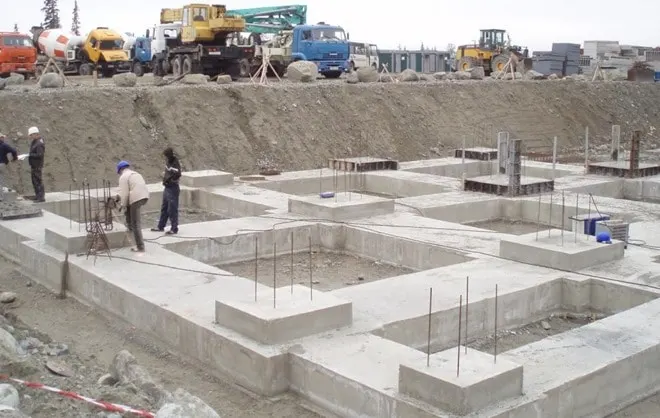Constructing a building foundation is an essential part of the building process. It provides a stable and secure base for the entire structure, ensuring its longevity and safety. However, building a foundation is not a straightforward process, and there are several factors to consider before construction begins. In this article, we will discuss the critical factors to consider before constructing the foundation of your building.
Site Analysis
The first step in constructing a building foundation is to conduct a site analysis. This analysis involves assessing the soil type, groundwater table, slope of the land, and any other factors that could affect the stability of the foundation. The site analysis will help determine the type of foundation that is best suited for the location.
Building Load
The foundation of a building must be designed to support the weight of the structure above it. The load-bearing capacity of the foundation must be determined by a structural engineer to ensure it can support the building’s weight. The building’s intended use and the materials used in its construction will also affect the load-bearing capacity of the foundation.
Foundation Type
There are several types of foundations, including shallow foundations, deep foundations, and mat foundations. Shallow foundations are used when the soil is strong enough to support the building’s weight without the need for deep excavation. Deep foundations, such as piles or drilled shafts, are used when the soil is too weak or unstable to support a shallow foundation. Mat foundations are used when a large area of soil needs to be supported, such as for a high-rise building.
Soil Condition
The soil condition is a critical factor in determining the type of foundation to be constructed. The soil’s composition, strength, and stability will affect the foundation’s design and construction. Soils that are prone to swelling or shrinkage, such as clay soils, require special attention during the foundation construction process.
Climate
The climate of the region where the building is being constructed must be considered when designing the foundation. The foundation must be designed to withstand the weather conditions of the area, such as heavy rainfall, high winds, or seismic activity.
Drainage
The foundation’s design must incorporate proper drainage to prevent water from accumulating around or beneath the foundation. Water can weaken the soil and cause the foundation to settle or shift, which can compromise the stability of the building. Proper drainage can be achieved through the installation of a drainage system, such as a French drain.
Accessibility
The accessibility of the site must be considered when constructing the foundation. Access to the site will impact the delivery of materials and equipment needed for the foundation’s construction. If the site is difficult to access, it may require specialized equipment and additional construction time.
Building
Codes and Regulations Building codes and regulations must be adhered to during the foundation’s construction to ensure the building’s safety and compliance with local laws. The foundation must meet specific building code requirements, such as minimum load-bearing capacity, thickness, and depth.
Time and Budget Constraints
The construction timeline and budget must be considered when constructing the foundation. The type of foundation chosen will affect the construction timeline and cost. For example, a deep foundation will require more time and resources than a shallow foundation.
Contractor Selection
Selecting the right contractor for the foundation’s construction is crucial. A qualified contractor with experience in foundation construction can ensure that the foundation is constructed to meet the building’s requirements and local regulations. The contractor should also have the necessary equipment, resources, and skilled labor to complete the project on time and within budget.
In conclusion, constructing a building foundation requires careful consideration of several critical factors, including site analysis, building load, foundation type, soil condition, climate, drainage, accessibility, building codes and regulations, time and budget constraints, and contractor selection. These factors must be carefully considered to ensure the foundation is constructed safely and to meet the building’s requirements. Failure to properly consider these factors can result in foundation failure. Which can lead to costly repairs, property damage, and, in extreme cases, loss of life. Therefore, it is essential to work with a qualified contractor who can guide you through the foundation construction process and ensure that all factors are considered.

